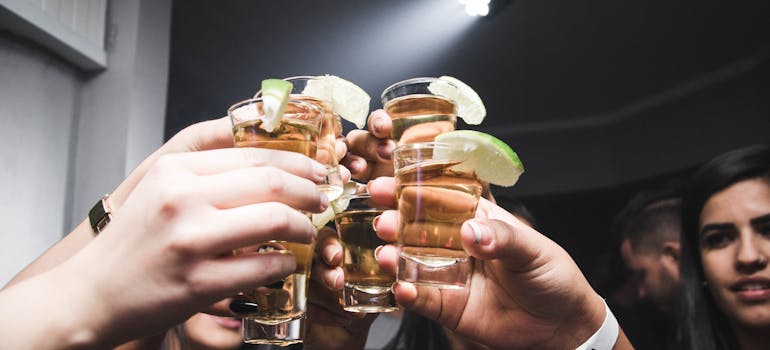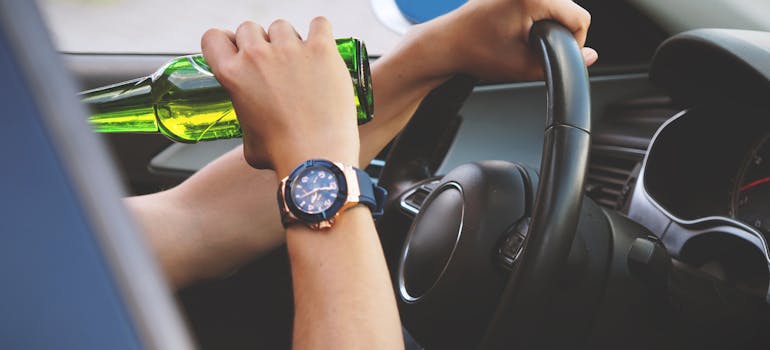Understanding the dangers of social drinking in West Virginia is essential. When you’re out with friends or family, it’s important to realize that casual drinking can lead to serious health problems and major life changes. We’ll delve into the impacts of social drinking, covering everything from health risks to social and legal issues. If you or someone you care about is struggling with alcohol, help is close by. Detox centers in WV offer supportive environments for starting on the path to recovery. Stay informed and make smart choices to protect your health and the well-being of your community.
Understanding Social Drinking in West Virginia
In West Virginia, the approach to social drinking is unique and influenced by local culture, economy, and laws. Statistics show that 11.4% of adults report excessive drinking, which is notably lower than the national average of 17.7%. However, challenges remain, particularly among the youth. There has been a decrease in alcohol use among 12-17 year-olds, from past years, reflecting positive changes in underage drinking behaviors.

Meanwhile, about 35.05% of adults have used alcohol in the last month, with 16.16% engaging in binge drinking. Furthermore, alcohol plays a role in 25% of driving deaths in the state. These figures highlight the need to understand and address the factors that influence drinking habits in West Virginia.
The Role of Environment and Peer Influence
The environment in which social drinking occurs and the influence of peers play significant roles in shaping drinking behaviors. Factors such as social gatherings, cultural norms, and peer pressure can impact the frequency and amount of alcohol consumed. Individuals may feel pressured to drink more than they intend to, leading to increased risks of alcohol-related harm.
Peer influence can also affect perceptions of social drinking. In social settings where alcohol is readily available and widely accepted, individuals may be more likely to engage in excessive drinking. Understanding the influence of environment and peers is essential in recognizing and addressing problematic drinking behaviors. By fostering environments that promote responsible drinking and encouraging supportive peer relationships, individuals can reduce the negative impact of social drinking on their health and well-being.
The Health Dangers of Social Drinking
Many people focus only on the short-term effects of social drinking, like hangovers or a night of poor decisions, often overlooking the severe long-term consequences. These can include chronic health issues such as liver disease and cognitive decline. Understanding both immediate and extended risks is crucial to fully grasp why social drinking is dangerous.
We will discuss both types of effects to provide a comprehensive view of the impact of social drinking. If you recognize these problems in yourself or someone you care about, know that alcohol rehab centers in WV are ready to help as soon as you notice your problem. Getting informed is the first step towards making safer decisions.
Immediate Health Effects
Social drinking might seem harmless at the moment, but it can have immediate, serious health effects. Being aware of these risks can help you make safer choices when socializing and drinking. These short-term consequences can include:
- Alcohol poisoning: Consuming a large amount of alcohol in a short period can lead to life-threatening toxicity.
- Accidents and injuries: Impaired coordination and judgment increase the risk of falls, car crashes, and other accidents.
- Blackouts: High alcohol levels can cause temporary memory loss or blackouts.
- Aggressive behavior: Alcohol can lower inhibitions and lead to aggressive acts or confrontations.
- Dehydration and hangovers: Alcohol is a diuretic, leading to dehydration, which often causes severe headaches and nausea the next day.
- Judgment impairment: Even moderate amounts can significantly impair decision-making abilities, affecting safety and social interactions.

Long-term Health Risks
The long-term health risks of regular social drinking are substantial and can affect nearly every organ in your body. Understanding these risks is crucial for anyone who engages in social drinking, emphasizing the importance of moderation and awareness of alcohol’s impact on health. Chronic alcohol use can lead to:
- Liver disease: Including conditions like fatty liver, hepatitis, and cirrhosis.
- Cardiovascular problems: Such as high blood pressure and heart disease.
- Cognitive decline: Long-term use can impair cognitive functions and lead to permanent brain damage.
- Cancer: Increased risk of cancers, especially in the liver, breast, mouth, throat, and esophagus.
- Mental health issues: Chronic drinking can exacerbate or lead to the development of mental health problems like depression and anxiety.
- Dependency and addiction: Prolonged alcohol use can result in physical dependency and alcoholism, requiring professional treatment to overcome.
The Slippery Slope: From Social Drinking to Dependence
When does social drinking become alcoholism? This transition often starts subtly as tolerance builds. Initially, you might find that you need more alcohol to achieve the same effects you once experienced with less. This increasing tolerance can quickly lead to dependence, where your body starts requiring alcohol to function normally.
Understanding this progression is crucial to recognizing when casual drinking has crossed into risky territory. If you or someone you know is struggling with alcohol dependence, it’s essential to seek help. Residential treatment facilities in WV offer comprehensive support and treatment programs designed to address alcoholism effectively. These facilities provide a safe environment where individuals can work towards recovery and regain control over their lives.

When Alcohol Clouds Judgment
Drinking socially can cloud your judgment and lead to risky decisions. When you’re under the influence of alcohol, you’re more likely to take chances that can result in accidents or injuries. This isn’t just about minor mishaps; serious consequences like car accidents or harmful falls can occur because alcohol makes it harder to assess risks properly.
If you find that your decision-making is often impaired due to drinking, it might be time to consider help. An intensive outpatient program West Virginia relies on can offer the support you need without requiring you to stay in a facility full-time. These programs are designed to help you understand and change your drinking habits while maintaining your daily life. By addressing your alcohol use, you can significantly reduce your risk of accidents and improve your ability to make safer choices.
Alcohol’s Toll on Your Mental Well-being
Social drinking might seem harmless, but it can seriously affect your mental health. Drinking alcohol, even socially, can lead to or worsen feelings of depression, anxiety, and other mood disorders. It’s not just about feeling down the next day; regular drinking can make these feelings stronger and more frequent, impacting your overall mental well-being.
Moreover, if you already struggle with mental health issues, alcohol can make things much worse, exacerbating existing conditions. It’s crucial to understand when casual drinking is sliding into something more dangerous. So, when does social drinking become alcoholism? It’s when you start using alcohol regularly to cope with your mood or stress, despite negative consequences.

Recognizing this pattern is the first step toward getting help. Cutting back on alcohol or seeking professional advice can prevent further damage to your mental health, helping you to lead a happier, healthier life.
How Drinking Strains Social Ties
Social drinking can really hurt your relationships, often more than you might realize. Initially, it might seem like just having fun, but alcohol can gradually lead to serious misunderstandings and conflicts with those close to you. As these issues accumulate, they can strain or even break relationships, leading to uncomfortable tensions with friends, family, and colleagues. This deterioration can make you feel isolated and disconnected, shrinking your social circle as people may start distancing themselves from the negativity associated with your drinking habits.
It’s also important to ask: how does social drinking turn into alcoholism? Often, what starts as casual drinking can slip into dependency without you noticing, hurting your relationships even more.
Legal Pitfalls of Alcohol Use
The legal consequences of social drinking can be severe and life-altering. Engaging in activities like drunk driving or being publicly intoxicated not only poses serious risks to your safety and the safety of others but also leads to significant legal troubles. Drunk driving charges can result in hefty fines, loss of driving privileges, and even jail time. Public intoxication, meanwhile, can lead to arrests, creating a criminal record that affects future job prospects and personal relationships.
For those who find themselves repeatedly facing such issues, it may indicate a deeper problem with alcohol. In such cases, enrolling in a partial hospitalization program in West Virginia can be a crucial step towards recovery. These programs offer structured treatment and support while allowing participants to maintain some daily activities, providing the necessary help to overcome alcohol-related challenges and avoid future legal consequences.

Counting the Cost of Social Drinking
Social drinking often comes with a financial burden that many might not initially consider. The costs add up quickly, from buying drinks at bars and restaurants to the extra expenses of dining out more frequently in environments where alcohol is prevalent. Over time, these costs can strain your budget significantly.
Moreover, there is a thin line between social drinking and alcoholism, and as drinking habits intensify, so do the expenses—not just for the alcohol itself but also for potential health care and legal issues associated with excessive drinking. Managing how much you spend on social activities involving alcohol can help keep your finances under control. It’s crucial to be mindful of your spending and the amount you drink, as both can escalate without careful attention. Recognizing this can help you make more informed decisions, preserving both your financial well-being and your health.
Alcohol and Your Career: A Risky Mix
Being aware of how alcohol impacts your professional life is key. It’s important to manage your social drinking habits to maintain your job performance and career growth. Making smarter choices about alcohol can lead to better health and more consistent productivity at work. Social drinking can seriously affect your work performance and productivity. Here’s how:
- Absenteeism: After nights of heavy drinking, you might find yourself calling in sick more often due to hangovers or alcohol-related illnesses.
- Tardiness: The aftereffects of drinking can make it tough to get out of bed and arrive on time.
- Lack of focus: Alcohol impairs your cognitive functions, making it hard to concentrate and stay on task the following day.
- Cognitive function: Regular social drinking can lead to long-term deterioration in your mental abilities, affecting problem-solving and decision-making skills.
Drinking Responsibly – Tips for Moderation
Responsible drinking is crucial in mitigating the dangers of social drinking. Remember, the key to enjoying alcohol responsibly is awareness and control. Here are some effective strategies to help you maintain control and enjoy alcohol safely:
- Set limits: Decide in advance how many drinks you will have and stick to it.
- Pace yourself: Take your time with each drink, ideally having no more than one alcoholic beverage per hour.
- Hydrate: Alternate each alcoholic drink with a glass of water to help reduce alcohol consumption and prevent dehydration.
- Know when to say no: Be prepared to stop drinking when you’ve reached your limit, regardless of social pressure.

A Bit More on Social Drinking Risks
The dangers of social drinking are not to be underestimated. Throughout this article, we’ve explored both the immediate and long-term impacts that alcohol can have on your health, relationships, legal standing, and financial situation. Recognizing these risks is vital for anyone who engages in social drinking.
Awareness is the first step towards change. By understanding the dangers, you can make informed decisions about your alcohol consumption. It’s important to adopt responsible drinking habits to safeguard your health and well-being. Remember, moderation is key, and help is available if you find it difficult to control your drinking. Let’s prioritize safety and well-being by being mindful of the dangers of social drinking and taking steps to drink responsibly.



